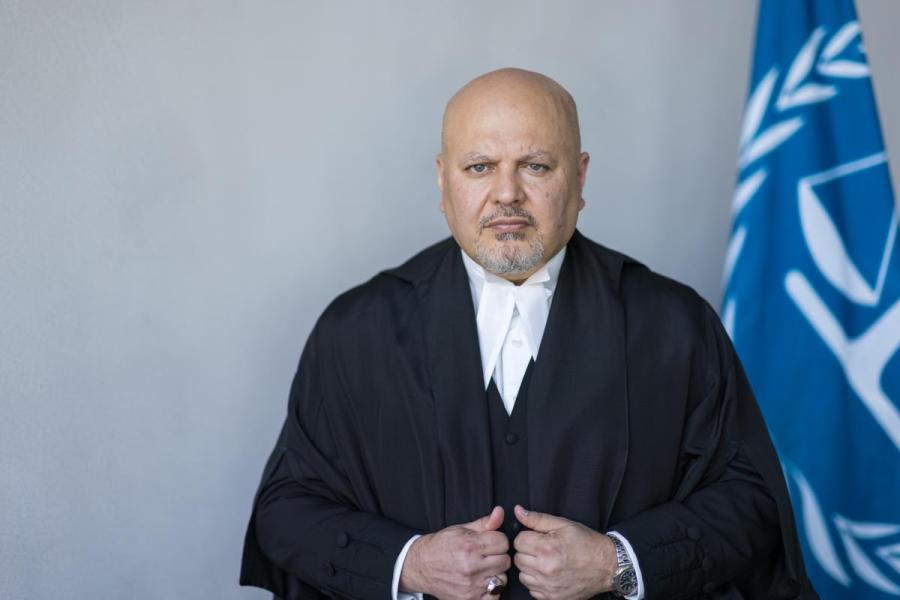(NewsNation) —The International Criminal Court (ICC) announced Monday that it is seeking arrest warrants for several high-ranking Israeli and Hamas leaders including Israeli Prime Minister Benjamin Netanyahu and Hamas leader Yahya Sinwar on charges of war crimes and crimes against humanity amid the Israel-Hamas war that has claimed thousands of lives.
ICC Chief Prosecutor Karim A.A. Khan said in a statement he is applying for arrest warrants and that he believes Netanyahu, his defense minister Yoav Gallant and three Hamas leaders are responsible for numerous crimes against humanity under ICC law.
“Now, more than ever, we must collectively demonstrate that international humanitarian law, the foundational baseline for human conduct during conflict, applies to all individuals and applies equally across the situations addressed by my Office and the Court. This is how we will prove, tangibly, that the lives of all human beings have equal value,” Khan stated.

Netanyahu called the charges against him by the ICC a “disgrace” and “an attempt to deny Israel the basic right of self-defense.”
President Biden slammed the ICC’s decision as “outrageous” and affirmed U.S. support for Israel.
Hamas also denounced the ICC prosecutor’s accusations saying the request to arrest its leaders “equates the victim with the executioner.”
In seeking the warrants, the ICC has drawn a firm line over the violence and brutality touched off in the region since Oct. 7.
But it remains to be seen how the ICC will proceed.
What is the ICC?
The ICC was established in 2002 and is the highest intercountry court that investigates and prosecutes individuals responsible for war crimes, crimes against humanity, genocide and the crime of aggression, according to the court.
The Rome Statute creating the ICC was adopted in 1998 and took effect when it got 60 ratifications on July 1, 2002.
The U.N. General Assembly endorsed the ICC, but the court is independent.
124 member states, which include Japan, Canada and Jordan, have signed on to the Rome Statute and ICC’s jurisdiction.
But several geopolitical power players didn’t sign the statute and don’t accept ICC’s jurisdiction or decisions. These include Israel, the United States, Russia and China.
The court operates in Hague, Netherlands, and becomes involved when nations are unable or unwilling to prosecute crimes on their territory.
It has issued a total of 42 arrest warrants and taken 21 suspects into custody. Its judges have convicted 10 suspects and acquitted four.
Currently, 17 people for whom the ICC has issued warrants of arrest remain at large.
How are ICC warrants executed?
The ICC does not have its own police force or enforcement body and must rely on “cooperation” by member countries to help make arrests, transfer arrested persons to the ICC detention center in The Hague, freeze suspects’ assets, and enforce sentences.
With more than a dozen people still at large, warrant execution remains challenging for the ICC.
What happens next?
Although the ICC said it is seeking arrest warrants, the final decision to grant any of the arrest warrants falls on the ICC’s Pre-trial judges.
“To issue a warrant, the judges must be satisfied that there are reasonable grounds to believe that the suspect has committed a crime within the jurisdiction of the ICC,” according to the court.
A panel of three judges will decide whether to issue the arrest warrants and allow a case to proceed. The judges typically take two months to make such decisions.
Even if judges approve the warrant, the chances that any of the officials will be arrested and prosecuted remains slim.
The threat of arrest could make it difficult for Israeli and Hamas leaders to travel abroad.
Netanyahu said last month that Israel “will never accept any attempt by the ICC to undermine its inherent right of self-defense.” He said that while the ICC won’t affect Israel’s actions, it would “set a dangerous precedent.”
The Associated Press contributed to this story.